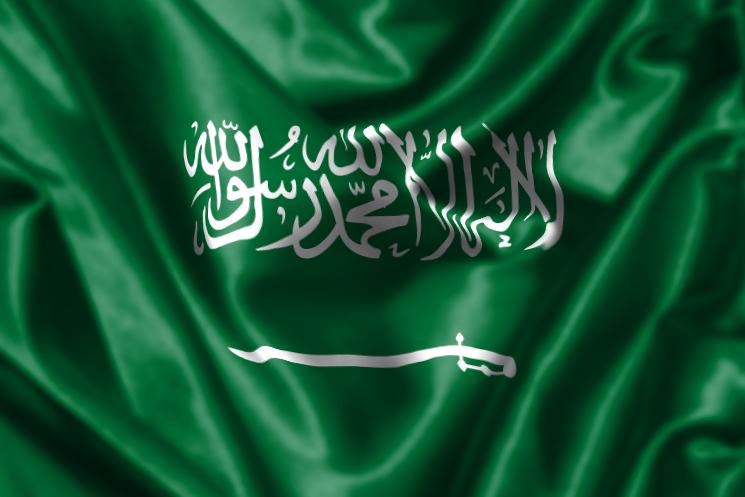MSCI will add Saudi stocks to its Emerging Markets Index and other indexes in waves. The first additions will come at the end of May, and then again at the end of August. FTSE Russell and S&P Dow Jones already started adding Saudi stocks to their emerging markets indexes in March. But as the provider of the more widely-used benchmark and the de facto arbiter for just how “developed” countries are, MSCI’s move, first announced last year, carries more weight. Some $14 trillion in investor assets track MSCI’s indexes.
That means Saudi stocks will start showing up in exchange-traded funds that track the MSCI Emerging Markets Index as well as others–and possibly in the 115 actively managed mutual funds that use the index as a benchmark for performance, too.
MSCI will add 69 stocks with a total market capitalization of $84 billion–roughly 15% of the $530 billion Saudi market, which is also known as the Tadawul. The Saudi government has been privatizing many industries, and its stock market is now largely made up of two sectors–financials and materials. Adding Saudi stocks to the index will help bring foreign investment into the country. “The positive is diversification to the index, greater regional and country exposure,” says Sebastien Lieblich, MSCI’s global head of equity solutions. “International investors base their decisions on the constitution of the index, so added countries will see more capital.”
There are two main ETFs that track the MSCI Emerging Market index: the $35 billion iShares MSCI Emerging Markets (EEM) and the $60 billion iShares Core MSCI Emerging Markets (IEMG). But the addition will mean more to active managers, says Todd Rosenbluth, an analyst at CFRA Research. “Saudi Arabia will make up a small part of the index, but it will also be meaningful enough that not taking a bet will still mean taking a bet,” he says.
In other words, some active managers worry about how their portfolios differ from the benchmark they are trying to beat. And Saudi stocks have had a good run of late: The $600 million iShares MSCI Saudi Arabia ETF (KSA) gained 14% in the last year, while assets in it have doubled just in the last couple of months.
Active managers aren’t as well-versed in Saudi stocks, because the country has only been open to foreign investors since 2015. And they’ve been slow to embrace the newly named emerging market. Of the 115 actively managed stock funds that are benchmarked against the MSCI Emerging Markets Index, only eight held Saudi stocks, according to their latest holdings information, including those from T. Rowe Price and Parametric.
That’s likely to change: Saudi Arabia will make up almost 3% of the MSCI Emerging Markets Index, and “that’s too big to ignore,” says Oliver Bell, a portfolio manager at T. Rowe Price.
Other active managers say the index changes aren’t that meaningful. Saudi Arabia’s weight in the index is on par with Malaysia and Indonesia, notes Jed Fogdall, who manages emerging market strategies at Dimensional Fund Advisors. Fogdall acknowledges some of his clients have expressed concern about investing in the authoritarian country.
There’s also the “reconstitution effect” to consider–that is, the tendency for stock prices to rise ahead of index changes. “Roses are more expensive on Valentine’s Day,” Fogdall says.
Indeed Saudi stocks have been climbing since MSCI’s announcement. The forward price-to-earnings on Saudi stocks is about 15, more than the 12 for emerging markets stocks overall. Bell says valuations are “fair-ish,” but he sees long-term potential. Only 1% of the Saudi stock market is owned by foreign funds, he says, compared to the 11% average for emerging market countries.
“The inclusion is priced in,” says Jennifer Sireklove, head of investment strategy at Parametric, which first bought Saudi stocks more than 20 years ago. “We include countries not included in the emerging market index by design.”
Given the lack of Saudi stocks in mutual funds at the moment, active managers could be waiting until after the stocks are added to buy the dip. Historically, after the initial blush of excitement in new index additions, interest wanes. “Investors pre-position portfolios ahead of the actual day of the event,” Bell says. “The other side is a bit of a hangover.”
The iShares MSCI Emerging Markets ETF (EEM) rose $0.02 (+0.05%) in after-hours trading Friday. Year-to-date, EEM has declined -6.88%, versus a 10.39% rise in the benchmark S&P 500 index during the same period.

